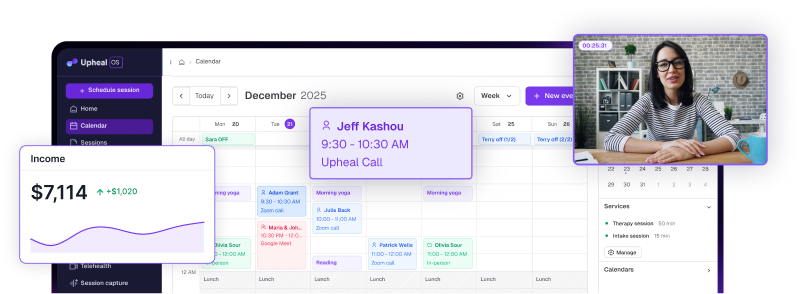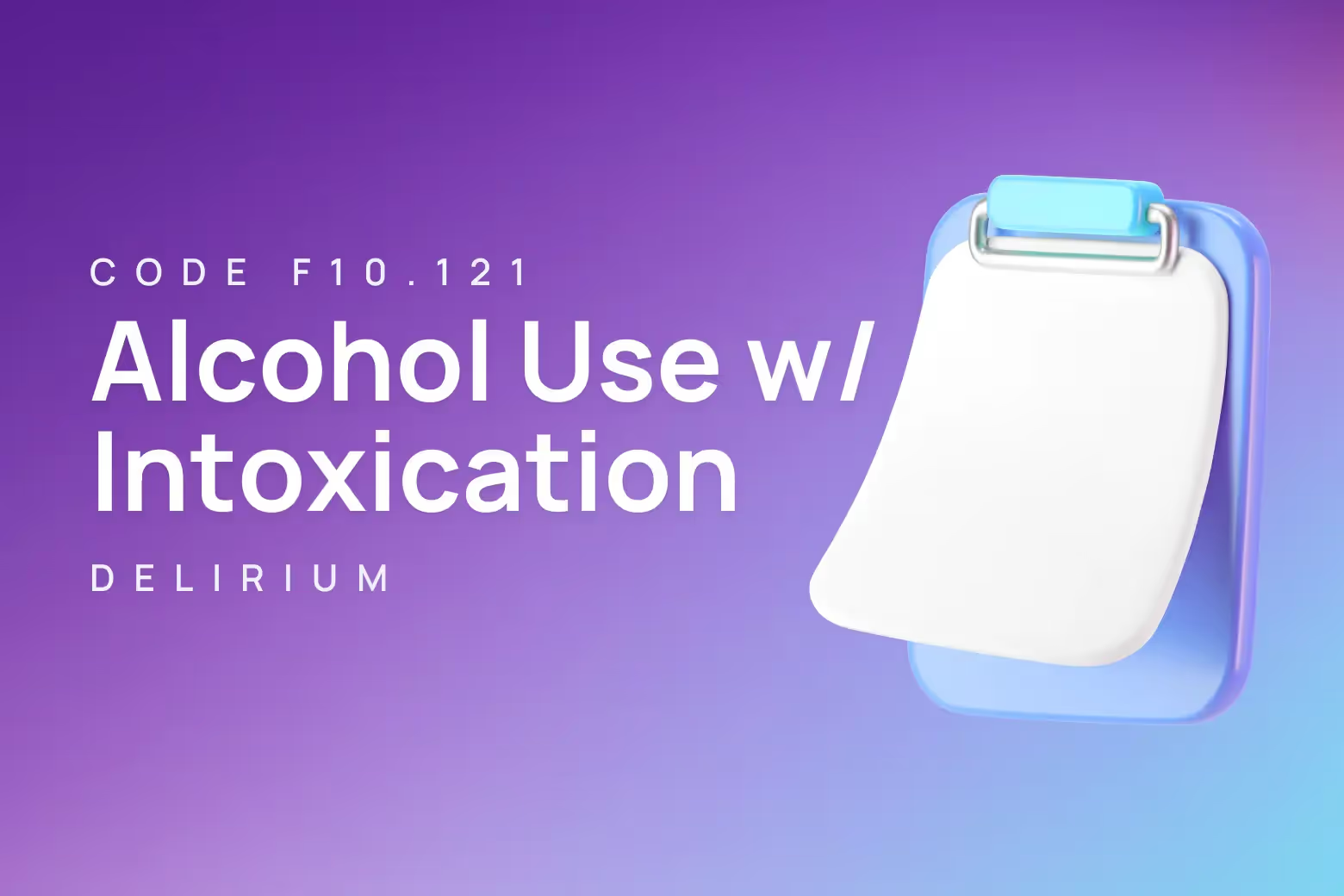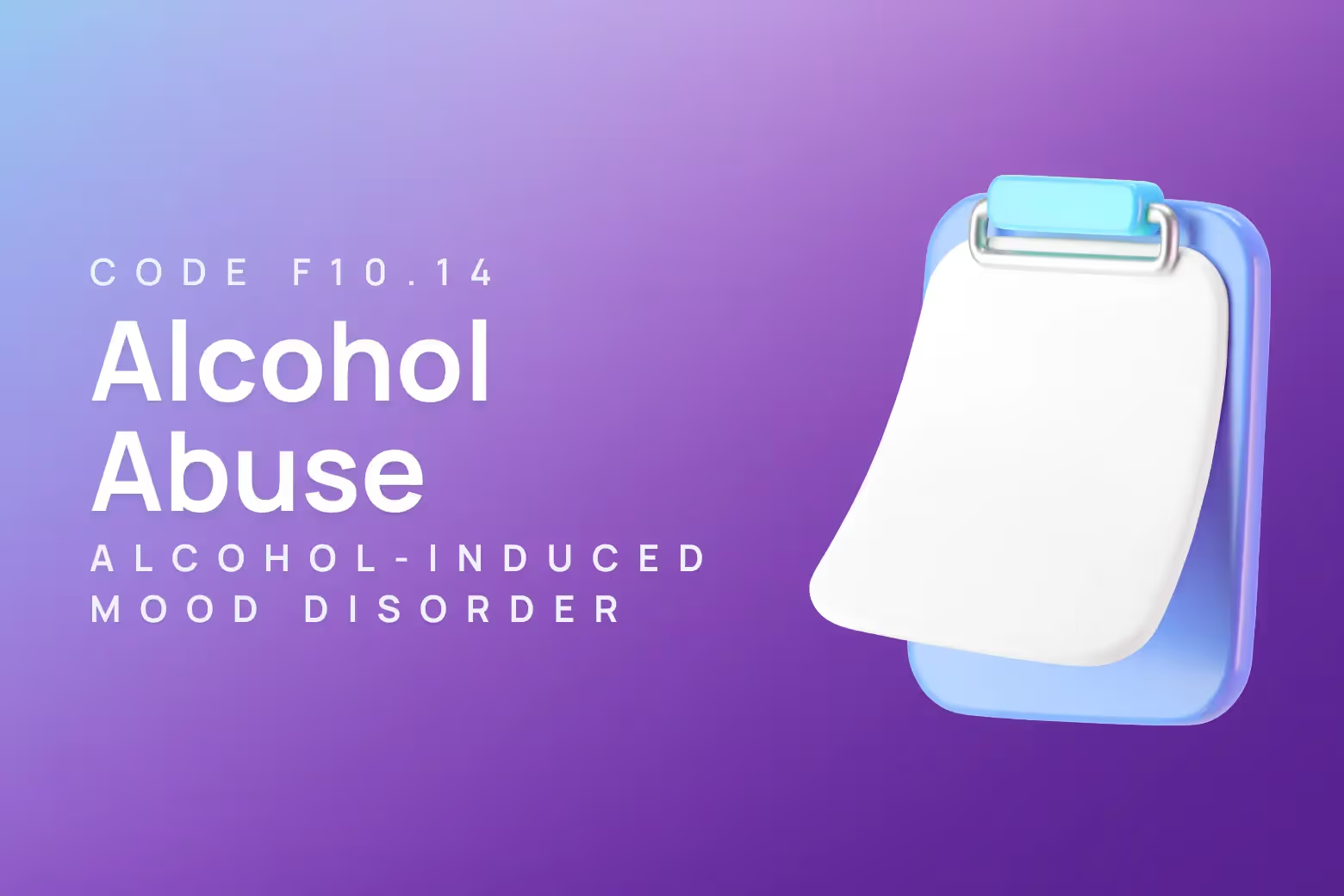ICD-10 code for bipolar disorder in remission

F31.7 is the ICD-10 code for bipolar disorder, currently in remission. This code applies when someone with established bipolar I disorder is not currently experiencing a mood episode and has achieved sustained symptom stability.
Accurate documentation for F31.7 supports continued care coordination while recognizing the significant progress clients have made in their recovery journey. Proper coding also helps maintain insurance coverage for ongoing maintenance treatments.
Understanding when someone with bipolar disorder has truly entered remission requires careful clinical assessment. The distinction between full and partial remission carries important implications for treatment planning and prognosis.
Key takeaways:
- F31.7 applies specifically to bipolar I disorder during periods of sustained symptom stability
- Remission status requires that full criteria are not currently met for manic, hypomanic, or major depressive episodes
- This code supports maintenance treatment approaches focused on relapse prevention

Diagnostic criteria for bipolar disorder in remission (F31.7)
F31.7 requires an established diagnosis of bipolar I disorder based on at least one lifetime manic episode lasting seven days or requiring hospitalization. The individual must have previously met full criteria for manic, hypomanic, or major depressive episodes during their illness course.
For remission coding, the person cannot currently meet full criteria for any mood episode. This means they show either no symptoms or only minimal residual symptoms that don't significantly impair functioning. The remission must be sustained over time rather than representing brief periods between active episodes.
The distinction between full and partial remission depends on symptom presence and functional impact. Full remission indicates no significant symptoms for a sustained period, while partial remission involves some residual symptoms that remain below diagnostic thresholds.
When to use F31.7 diagnosis code
Differential diagnosis becomes crucial when determining appropriate remission coding. Clinicians must distinguish between true symptom stability and temporary fluctuations that may signal emerging episodes.
F31.7 vs F31.81 (Unspecified bipolar disorder)
F31.7 specifically applies to individuals with established bipolar I disorder who are currently stable. In contrast, F31.81 represents cases where bipolar symptoms are present but don't meet full criteria for any specific bipolar disorder subtype. Someone in remission has a clear diagnostic history, while unspecified presentations lack sufficient information for precise classification.
The remission specifier provides important prognostic information about treatment response and recovery potential. This differs from unspecified coding, which typically reflects diagnostic uncertainty rather than treatment success.
F31.7 vs F31.61 (Mild mixed episode)
F31.61 indicates active mood symptoms that meet criteria for a mixed episode of mild severity. This represents ongoing illness activity rather than the symptom stability required for remission coding. Mixed episodes involve simultaneous manic and depressive features that cause clinically significant distress or impairment.
The distinction is critical because active episodes require different treatment approaches than maintenance therapy during remission. Current episode codes guide acute intervention strategies, while remission codes support long-term stability planning.
Related ICD-10 codes
Other related codes within the bipolar disorder spectrum include:
- F31.71 Bipolar disorder, in partial remission, most recent episode hypomanic
- F31.72 Bipolar disorder, in full remission, most recent episode hypomanic
- F31.73 Bipolar disorder, in partial remission, most recent episode manic
- F31.74 Bipolar disorder, in full remission, most recent episode manic
- F31.75 Bipolar disorder, in partial remission, most recent episode depressed
- F31.76 Bipolar disorder, in full remission, most recent episode depressed
- F31.77 Bipolar disorder, in partial remission, most recent episode mixed
- F31.78 Bipolar disorder, in full remission, most recent episode mixed
Interventions and CPT codes for bipolar disorder in remission
Maintenance psychotherapy
Evidence-based psychotherapy continues to play a vital role during remission periods. Interpersonal and social rhythm therapy, cognitive behavioral therapy, and psychoeducation help individuals maintain stability while developing skills for early episode detection.
Maintenance therapy sessions would be billed using standard psychotherapy codes:
- 90832 30-minute individual psychotherapy session
- 90834 45-minute individual psychotherapy session
- 90837 60-minute individual psychotherapy session
Family therapy and psychoeducation
Family involvement becomes especially important during remission to reinforce healthy patterns and recognize early warning signs. Family members learn to support recovery while avoiding behaviors that might trigger episode recurrence.
Family therapy during maintenance phases uses these CPT codes:
- 90846 Family therapy without patient present
- 90847 Family therapy with patient present
Group interventions
Group therapy provides peer support and shared learning experiences that can strengthen recovery. Groups often focus on relapse prevention, coping skills, and lifestyle management strategies that support long-term stability.
Group psychotherapy is billed using 90853.
How Upheal improves F31.7 ICD-10 documentation
Suggesting appropriate ICD-10 codes based on session content
Upheal's clinical documentation platform analyzes session content to recommend accurate diagnostic codes based on current symptom presentation. The system recognizes patterns indicating remission status versus active episodes, helping providers select the most appropriate F31.7 subcodes.
Maintaining HIPAA-compliant records with proper diagnostic coding
All diagnostic information and treatment notes remain fully encrypted and compliant with healthcare privacy regulations. Upheal's secure infrastructure protects sensitive mental health data while maintaining detailed documentation required for bipolar disorder care.
Reducing administrative burden so you can focus on client care
Automated documentation generation allows providers to spend more time on therapeutic activities rather than paperwork. The system creates comprehensive notes that capture the clinical details necessary for proper F31.7 coding while preserving the therapeutic relationship.
Supporting clients with bipolar disorder in remission
Recovery from bipolar disorder represents a significant achievement that deserves recognition and continued support. Clients in remission have worked hard to achieve stability and require ongoing care to maintain their progress.
The journey of sustained recovery involves vigilant attention to early warning signs, consistent medication adherence when prescribed, and regular therapeutic check-ins. Providers serve as crucial partners in this maintenance phase, offering support while helping clients build confidence in their ability to sustain wellness.
Accurate documentation using F31.7 codes ensures that insurance coverage continues for necessary maintenance treatments. This coding also provides valuable data about treatment effectiveness and recovery outcomes that can inform future care decisions.
Upheal is a clinical documentation platform that helps behavioral health providers maintain thorough records while focusing on the therapeutic work that supports lasting recovery. Providers can dedicate their attention to helping clients sustain their hard-won stability rather than getting bogged down in documentation requirements.
Ready to simplify your clinical documentation? Try Upheal free and discover how better documentation supports better care for clients in recovery.












